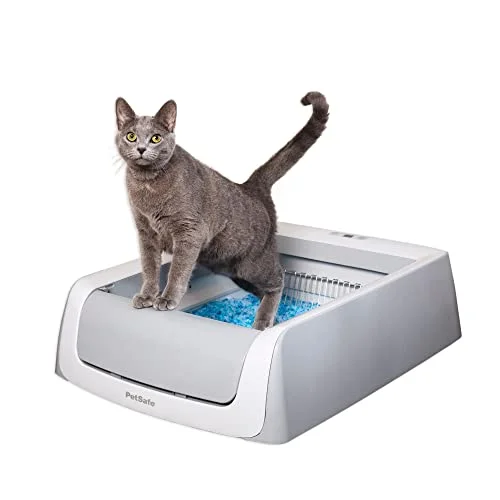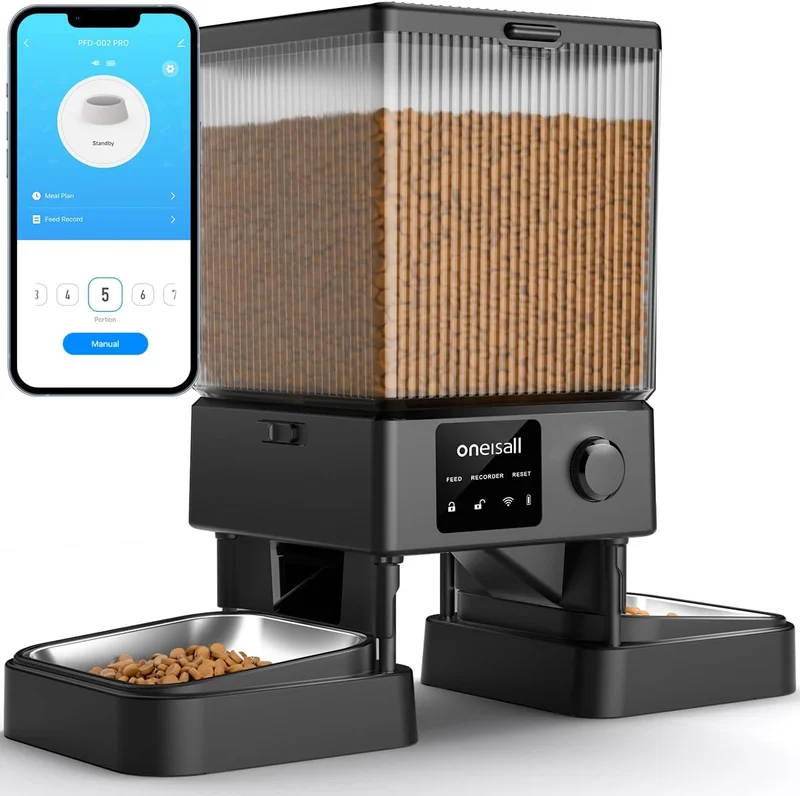10 Best Probiotics For Dogs of 2025
Discover the top probiotics for your furry friend! Boost their health and vitality with our expertly curated comparison. Find the perfect match to keep tails wagging and paws happy!
Updated: June 13, 2025
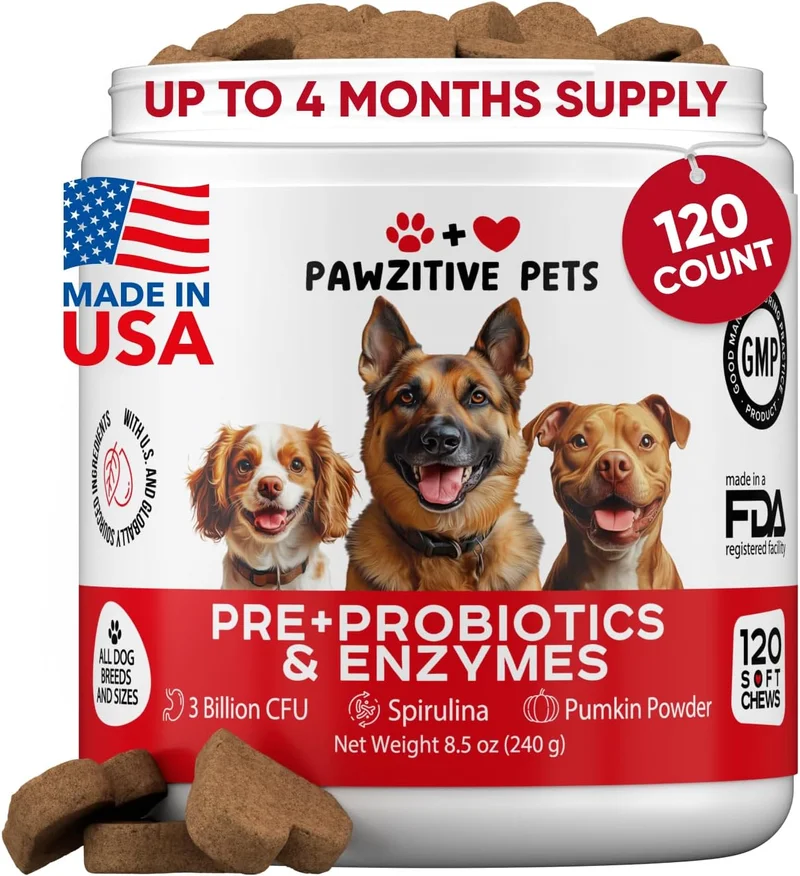
Pawzitive Pets Dog Probiotic Chews
- Supports gut health and reduces itchy skin.
- Made in the USA with quality ingredients.
- Boosts immune system with added enzymes.

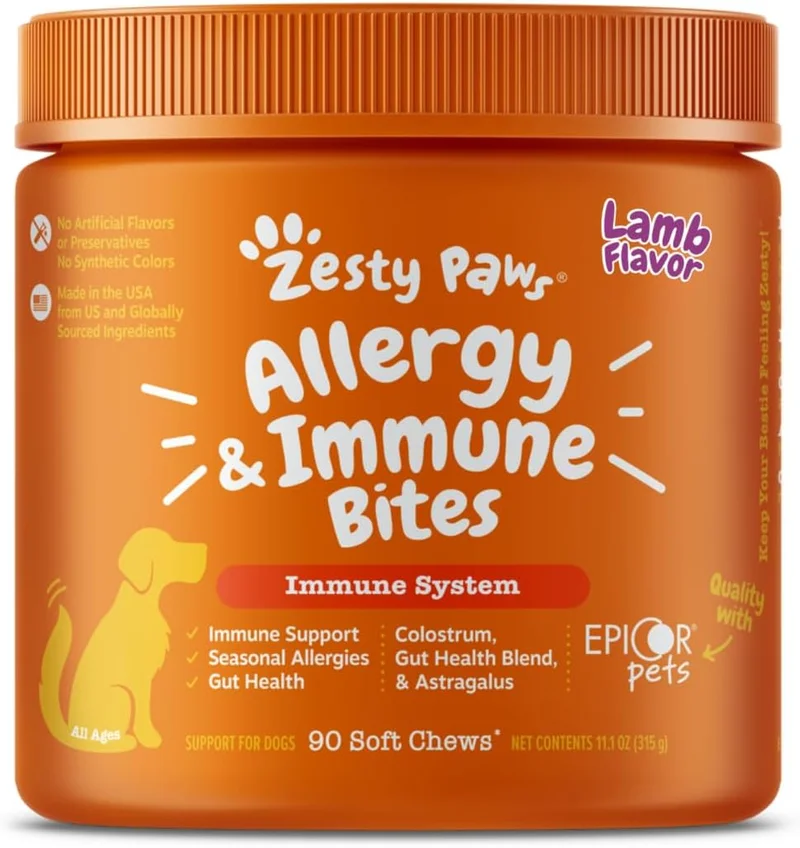
Zesty Paws Dog Allergy Relief Chews
- Supports skin health with natural ingredients.
- Lamb flavor is appealing to dogs.
- Contains probiotics for digestive health.

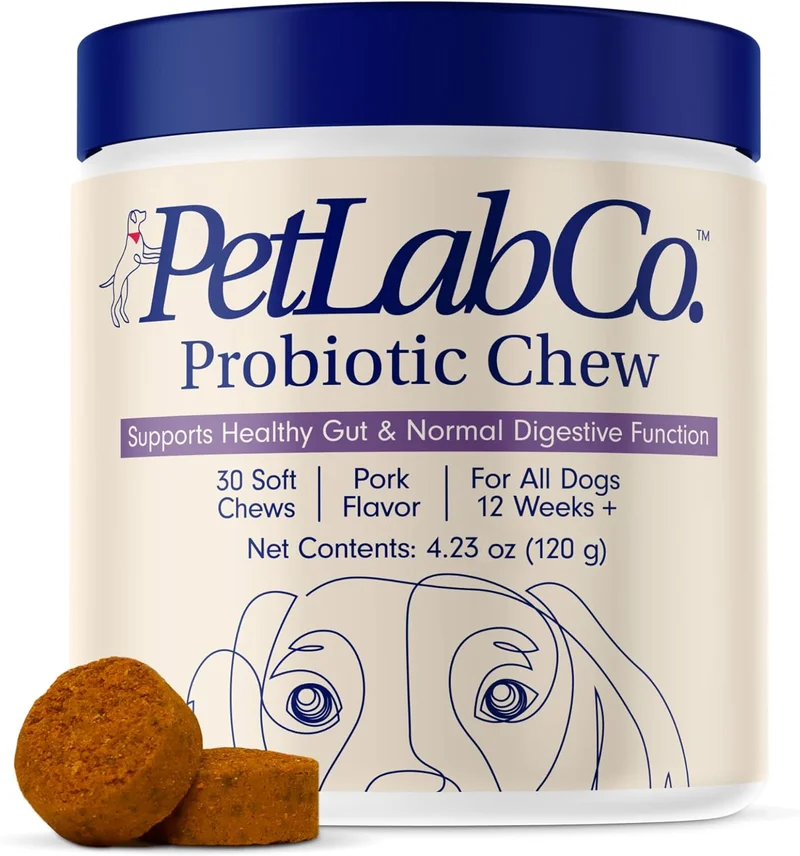
PetLab Co. Dog Probiotics - Pork Flavor Chews
- Tasty pork flavor dogs love.
- Supports dogs' digestive and gut health.
- Helps manage seasonal allergies effectively.

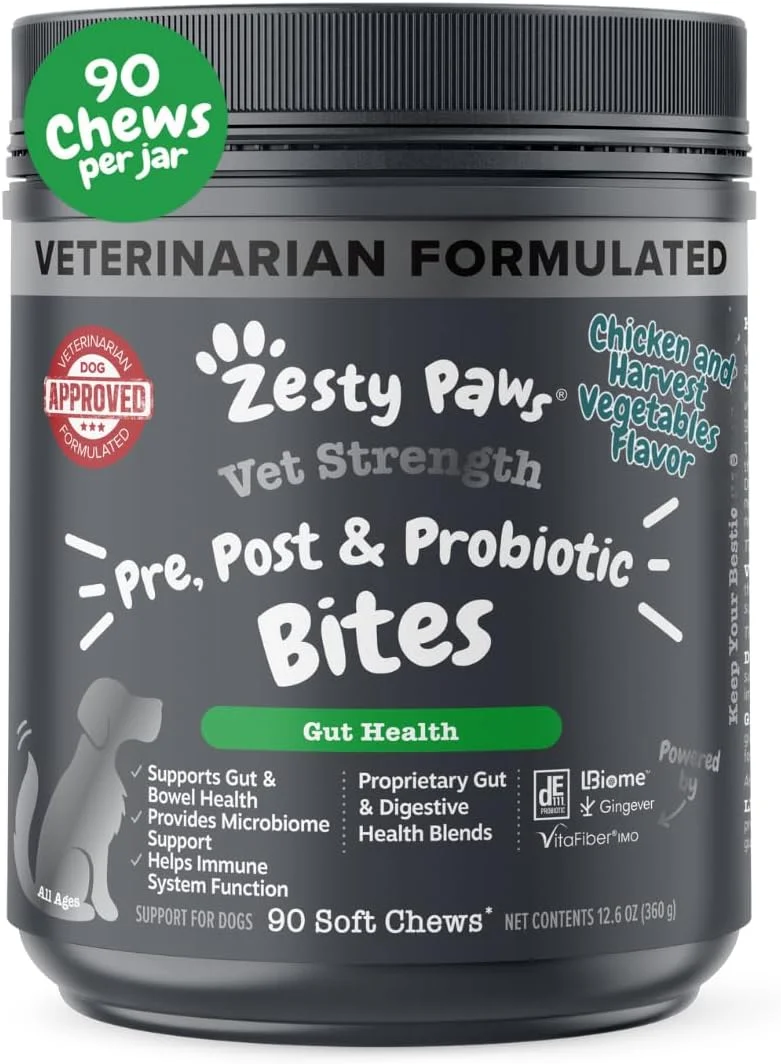
Zesty Paws Probiotics for Dogs - Digestive Health Supplement
- Contains clinically studied DE111 for gut health.
- Soft chew format easy for dogs to eat.
- Supports immune system and digestive health.

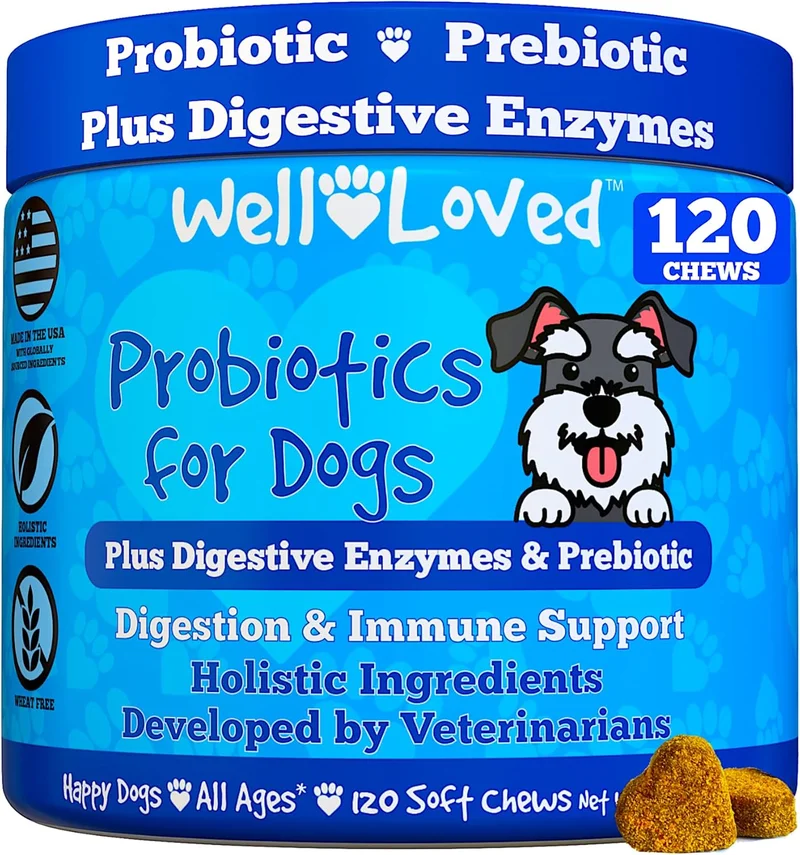
Well Loved Dog Probiotic Chews
- Vet-developed formula ensures professional quality.
- Supports gut health and gas relief effectively.
- Made in the USA for reliable standards.

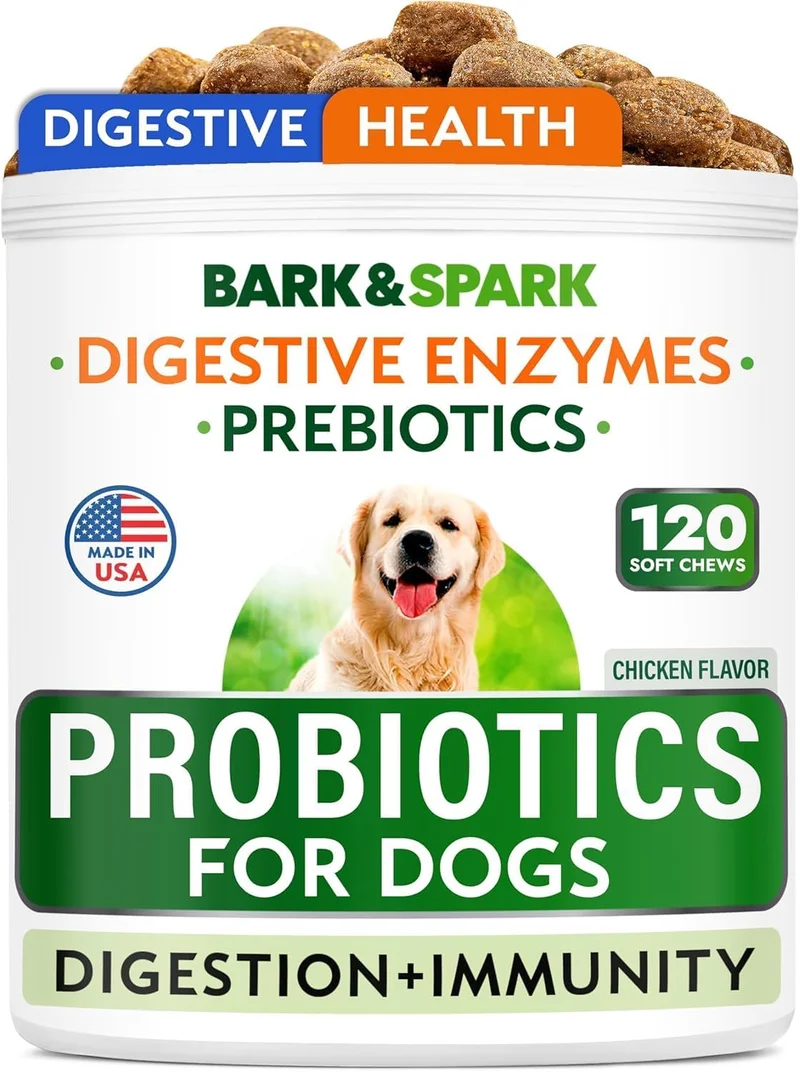
Bark & Spark Dog Probiotics & Enzymes
- Supports digestion with probiotics and enzymes.
- Helps relieve pet diarrhea and gas.
- Promotes healthy skin and reduces itchiness.

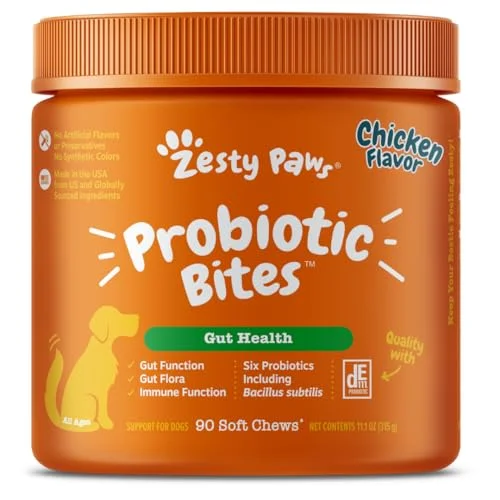
Zesty Paws Dog Probiotics Soft Chew
- Supports gut health with clinically studied DE111.
- Contains digestive enzymes for improved bowel support.
- Tasty chicken flavor loved by dogs.

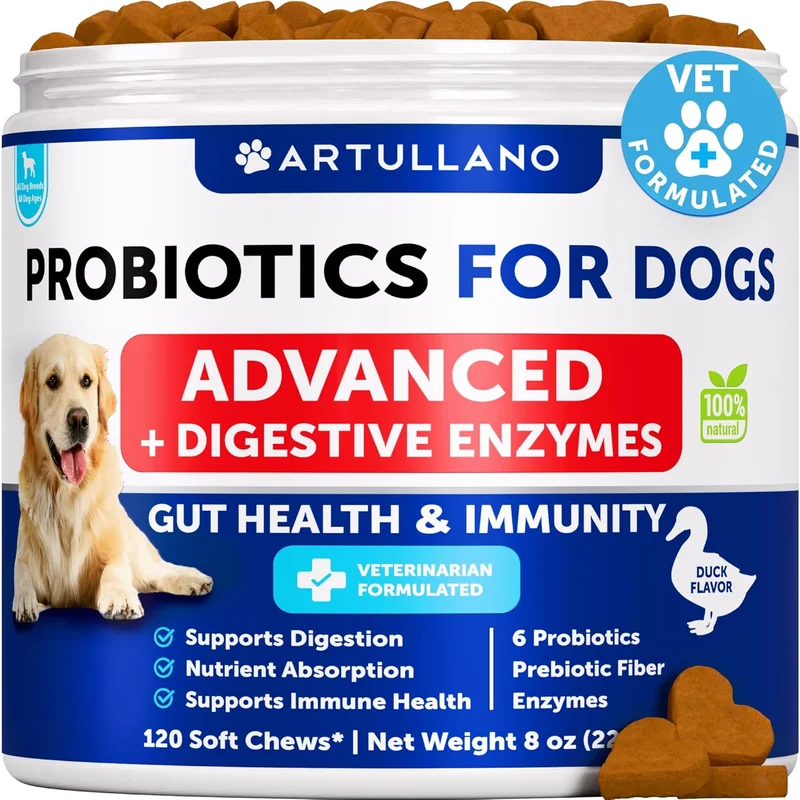
Artullano Dog Probiotics Chews
- Supports gut health with effective probiotic blend.
- Helps reduce diarrhea and gas issues.
- Promotes healthy skin and allergy relief.

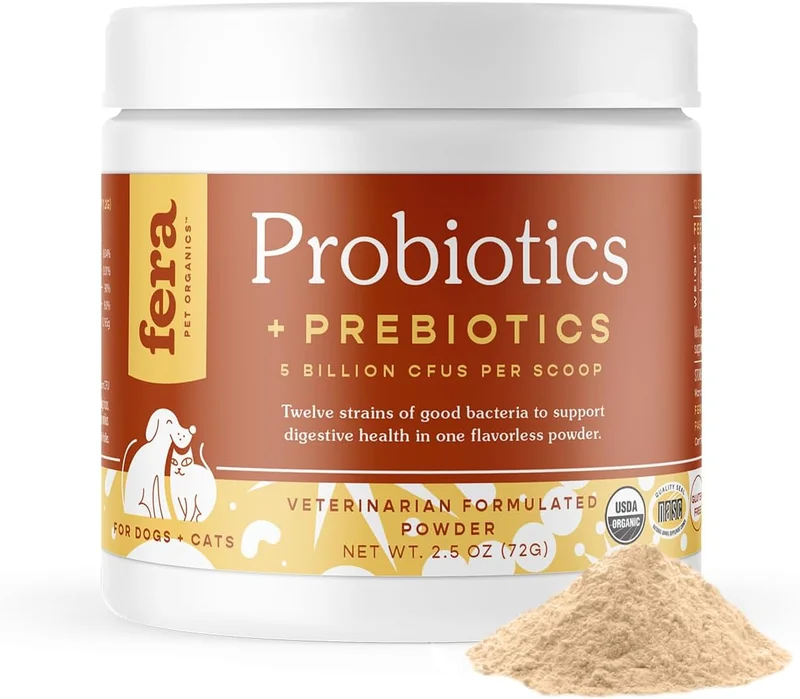
Fera Pet Organics Probiotics for Pets
- Contains 12 strains for effective digestion support.
- Organic ingredients ensure natural, safe consumption.
- Suitable for both dogs and cats.

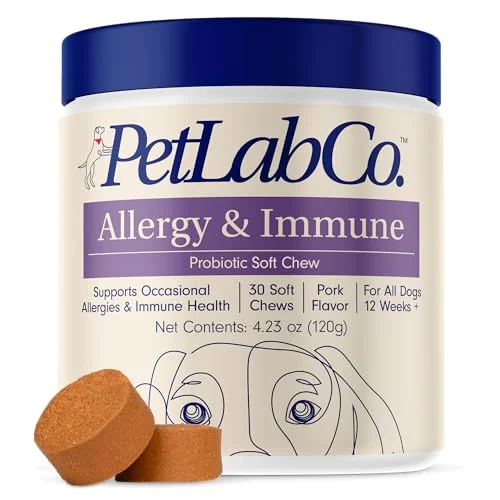
PetLab Co. Allergy & Immune Probiotics for Dogs
- Supports seasonal allergies and gut health.
- Tasty pork flavor dogs love.
- Easy-to-feed soft chew format.

Tired of Hunting for Deals?
Get the best daily discounts delivered straight to your inbox
You Might Also Like
Overview of probiotics for dogs
As pet owners, ensuring the health and happiness of our furry companions is a top priority. One way to support a dog's well-being is by incorporating probiotics into their diet. Probiotics are beneficial bacteria that can help maintain a balanced gut flora, improve digestion, and boost the immune system. With the increasing awareness of the importance of gut health, many dog owners are now considering probiotics to help address issues such as diarrhea, allergies, or digestive irregularities. This guide aims to explore the best probiotic options available for dogs, helping you make an informed choice for your pet's health.
Top probiotics for dogs
Frequently Asked Questions
How do probiotics for dogs benefit my pet's health?
Probiotics for dogs can improve digestive health, boost the immune system, and help manage conditions like diarrhea and allergies. By maintaining a healthy gut flora, probiotics support overall well-being and vitality in your furry friend.
Are there any specific signs that my dog might need probiotics?
If your dog is experiencing gastrointestinal issues like diarrhea, gas, or bloating, or if they have recently been on antibiotics, probiotics for dogs might help restore balance to their gut and improve their health.
How should I introduce probiotics into my dog's diet?
Start by consulting your veterinarian to ensure probiotics for dogs are suitable for your pet. Introduce them gradually, following the recommended dosage on the product label, and monitor your dog for any changes or improvements.
Can probiotics for dogs help with skin issues?
Yes, probiotics for dogs can aid in managing skin problems by reducing inflammation and enhancing the immune response. This can lead to healthier skin and coat, making your dog feel and look better.
Are there any potential side effects when giving my dog probiotics?
Probiotics for dogs are generally safe, but some dogs may experience mild digestive upset initially. If your dog shows any adverse reactions, it's best to consult your veterinarian to adjust the dosage or explore alternative options.


